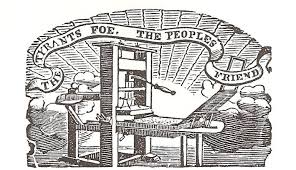In 2010 the Supreme Court decided Citizens United v. FEC, which struck down a small number of “campaign finance” laws–or at least their application–on First Amendment grounds.
Trusters of government went into hysterics. They claimed the Supreme Court had ruled that corporations are people, and that the Supreme Court had pronounced that money is speech in every instance.
(Of course laws which limit spending on political pamphlets and ads DO infringe on freedom of press, and corporations are–for some purposes–legal persons which can hire, fire, pay taxes, sue, be sued, create books and movies and publish news, websites, ads and information.)
And most of the “corporations” which fund political ads are NONPROFIT ideological groups such as the NRA or the NAACP. (and their influence on election outcomes can always be debated.)
Chief among the “campaign finance reform” advocates has been the New York Times, a FOR-PROFIT CORPORATION which buys its ink by the 55-gallon drum. The Times has been a consistent cheerleader for government expansion and intrusion into every aspect of human life.
And this year the Times actually came out openly as something of a pro-government Super Pac (but which is not subject to the campaign finance laws the Times promotes).
The Times’ editorial board changed the bio on the opinion section’s Twitter account to inform the public that it was “temporarily taking over” the feed to lobby against the Senate GOP tax bill. The board then proceeded to tweet out the phone numbers of various Republican senators and implored the public to deluge their offices with phone calls, “to urge the Senate to reject a tax bill that hurts the middle class & the nation’s fiscal health.”


